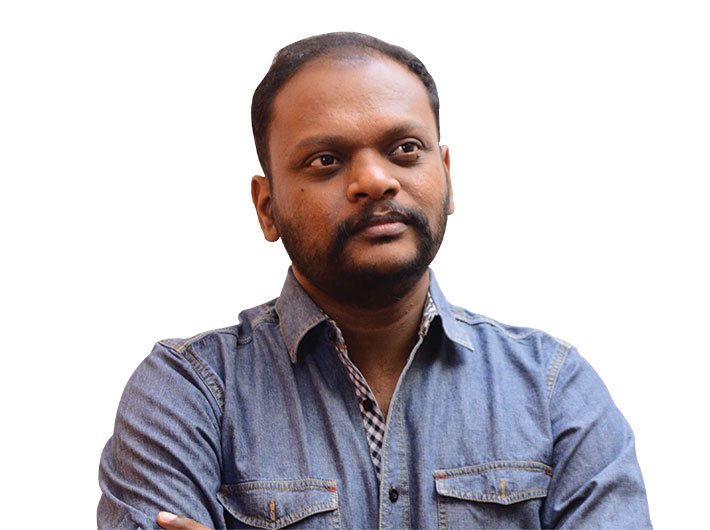G Bramma’s first film, Kutram Kadithal, won the national award for best feature film in Tamil. It spoke of the need for safe and healthy schooling of children. It also won the state award for best film, and was screened at various national and international film festivals. His next movie, Magalir Mattum, celebrates womanhood, and was released in August.
What role does an artist play in society?
Artists dream for society. I think they point out where the system is going wrong as a whole. They set the ideal towards which the people need to move on. Entertainment being the second in precedence, artists ease the audience from the competitive and stressful world. Cultural heritage and patronising it is another inherent role of the artists. In a larger perspective, the arts have been a colossal document that reflects the culture, lifestyle and professional traits of the people of a country in every period, becoming a window for other nations. Artists being phenomenon constructors of a society, a policymaker or a common man needs to keenly watch for their exhibits to build a stronger nation.
What problems did you face in the industry initially?
I still am in the initial stage. Like any other industry, film-making requires you to prove your capabilities, both to the audience and to others in the industry. We need to earn our place. Initially, with Kuttram Kadithal, it was a smooth journey till we completed our film. We faced a challenge when Christy Siluvappan, our producer, wanted to sell off the movie. It was screened to nine big production companies but they didn’t proceed to buy it as it had no familiar faces. Since we were a fresh bunch, it took a herculean effort for us to pop out. Later, once the film picked up in film festivals and J Satish Kumar bought the film, there was a positive change and we are grateful to him for promoting new talent like us.
How does the social and political climate in India impact your creative expression?
For me, the social and political climate is the base for any thought process. I consciously look out for dynamic changes in the sociopolitical scenario to reflect through my films. It provides a lot of inputs to develop stories and raise opinions. On the other side, the increased access to social media has quick influence on others’ opinion and eventually creates a situation for the artist to be extra careful and, I see it as an interesting challenge. The censor board, which polices artistic expression, strongly wants every film to sound politically correct. They have a strong weapon of certification and any film certified ‘A’ loses large revenue. This means the creator has to be in the good books of the censor board. The strange part of it is that the board insists on cuts even if the film is certified ‘A’. Unlike any other state, Tamil Nadu suffers from a major piracy issue and a double-tax issue [GST plus additional tax] which deeply affects the profit margin of film producers, thereby lessening the opportunities of writers-directors like us. I hope the state bodies will resolve this as early as possible.
What are the major challenges India is facing?
Corporatisation. The native establishments are under risk. Anti-agricultural policies are shocking. Fanatic pressures like beef ban, and attempt to ban jallikattu are putting our rights at stake. Freedom of expression is being drastically violated and the Goondas Act is abused during genuine protests and demonstrations. Tamil fishermen are still shot dead at Sri Lankan borders. Violence against women and dalits is growing every day. On top of all this, manual scavenging continues in 21st century and it is time for us to announce it as a national shame. What have our satellites and IT revolution delivered us, when we still force some communities to sweep human shit with their bare hands?
Where do you see India 10 years from now?
I am deeply concerned. I am worried that the globalisation effect is showing in schools and hospitals. Key common-man service areas are being privatised. Like any other citizen, I too want this nation to be secular, egalitarian and peaceful. I don’t want India to be a developed nation, if the term ‘developed’ is marked by just GDP indices. I would prefer it to stay as a developing country with a right pace of holistic development that caters to the common man instead of catering only to the capitalists. Whichever party rules, its aim should be to release the country from the clutches of multinationals that dictate the terms in every corner of this country.

